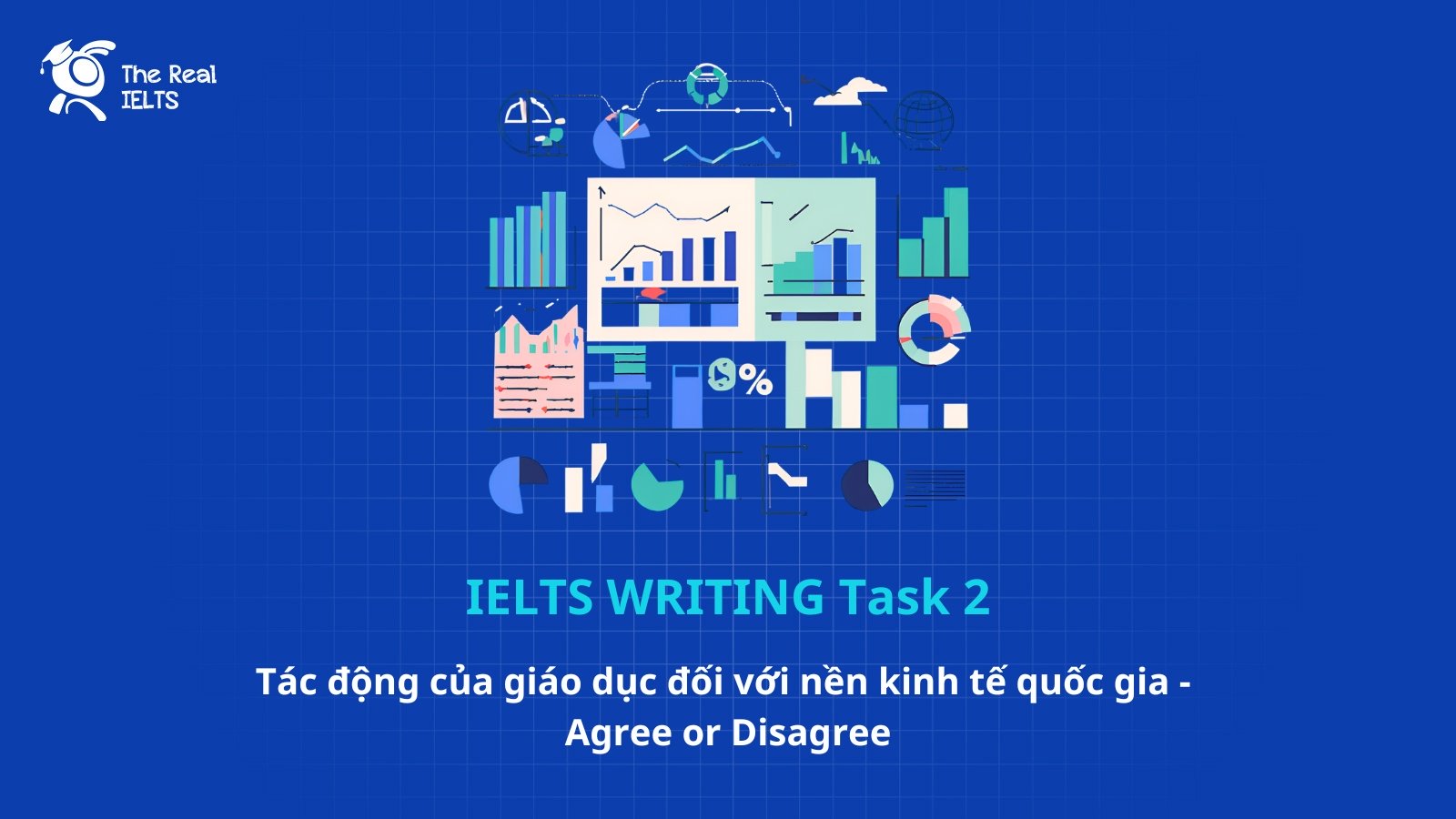Series luyện Writing Skill của The Real IELTS với chủ đề Exploring Cultural Diversity in Today’s Workplace.
Từ vựng và cụm từ vựng trong bài Writing
- Cultural diversity: Đa dạng văn hóa
- Globalized world: Thế giới hóa
- Significance: Ý nghĩa
- Benefits: Lợi ích
- Challenges: Thách thức
- Perspectives: Quan điểm
- Innovation: Đổi mới
- Adaptability: Khả năng thích ứng
- Problem-solving skills: Kỹ năng giải quyết vấn đề
- Communication barriers: Rào cản giao tiếp
- Misunderstandings: Sự hiểu lầm
- Resistance to change: Sự chống đối với sự thay đổi
- Stereotyping: Định kiến
- Bias: Thiên vị
- Open communication: Giao tiếp mở cửa
- Diversity training: Đào tạo đa dạng
- Inclusive environment: Môi trường bao gồm tất cả
- Flexible policies and practices: Chính sách và thực hành linh hoạt
- Embracing: Nắm bắt, ôm
- Inclusivity: Sự bao gồm, tính bao dung
- Mentorship programs: Chương trình hướng dẫn
- Startup: Doanh nghiệp khởi nghiệp
- Innovation: Sáng tạo
- Marketplace: Thị trường
Dàn ý triển khai:
I. Introduction A. Definition of cultural diversity B. Importance of cultural diversity in the workplace
II. Benefits of Cultural Diversity in the Workplace A. Enhanced creativity and innovation B. Increased adaptability and flexibility C. Broader range of perspectives and ideas D. Improved problem-solving skills
III. Challenges of Cultural Diversity in the Workplace A. Communication barriers B. Misunderstandings and conflicts C. Resistance to change D. Stereotyping and bias
IV. Strategies for Managing Cultural Diversity A. Promoting open communication B. Providing diversity training C. Creating a supportive and inclusive environment D. Implementing flexible policies and practices
V. Case Studies of Successful Cultural Diversity Initiatives A. Company X: Embracing cultural diversity to drive innovation B. Organization Y: Fostering inclusivity through diversity training and mentorship programs C. Startup Z: Building a diverse team from the ground up
VI. Conclusion A. Recap of the importance of cultural diversity in the workplace B. Call to action for embracing and celebrating cultural differences for organizational success.
Bài viết gợi ý
Embracing Cultural Diversity: A Key to Success in Today’s Workplace
Nắm Bắt Đa Dạng Văn Hóa: Chìa Khóa Cho Sự Thành Công Trong Nơi Làm Việc Hiện Nay
Introduction: In today’s globalized world, cultural diversity has become more important than ever. This article explores the significance of cultural diversity in modern workplaces and discusses its benefits, challenges, strategies for management, and successful case studies.
Giới thiệu: Trong thế giới hiện đại đang bùng nổ của ngày nay, đa dạng văn hóa đã trở nên quan trọng hơn bao giờ hết. Bài viết này khám phá ý nghĩa của đa dạng văn hóa trong các nơi làm việc hiện đại và thảo luận về các lợi ích, thách thức, chiến lược quản lý và các trường hợp thành công.
Benefits of Cultural Diversity in the Workplace: Cultural diversity enhances creativity, innovation, adaptability, and problem-solving skills by bringing together individuals with different perspectives and ideas.
Lợi ích của Đa Dạng Văn Hóa trong Nơi Làm Việc: Đa dạng văn hóa nâng cao sự sáng tạo, đổi mới, khả năng thích ứng, và kỹ năng giải quyết vấn đề bằng cách kết hợp các cá nhân có quan điểm và ý tưởng khác nhau.
Challenges of Cultural Diversity in the Workplace: Despite its benefits, cultural diversity can also present challenges such as communication barriers, misunderstandings, resistance to change, and biases.
Thách thức của Đa Dạng Văn Hóa trong Nơi Làm Việc: Mặc dù có lợi ích, đa dạng văn hóa cũng có thể đặt ra các thách thức như rào cản giao tiếp, sự hiểu lầm, sự chống đối với sự thay đổi, và thiên vị.
Strategies for Managing Cultural Diversity: To effectively manage cultural diversity, organizations can promote open communication, provide diversity training, create inclusive environments, and implement flexible policies and practices.
Chiến lược Quản Lý Đa Dạng Văn Hóa: Để quản lý đa dạng văn hóa một cách hiệu quả, tổ chức có thể khuyến khích giao tiếp mở cửa, cung cấp đào tạo đa dạng, tạo ra môi trường bao gồm tất cả, và triển khai chính sách và thực hành linh hoạt.
Case Studies of Successful Cultural Diversity Initiatives: Examples include Company X, which embraces cultural diversity to drive innovation; Organization Y, which fosters inclusivity through diversity training and mentorship programs; and Startup Z, which builds a diverse team from the ground up.
Các Trường Hợp Nghiên Cứu về Các Sáng Kiến Đa Dạng Văn Hóa Thành Công: Các ví dụ bao gồm Công ty X, một tổ chức nắm bắt đa dạng văn hóa để đẩy mạnh sự đổi mới; Tổ chức Y, khuyến khích sự bao gồm thông qua đào tạo đa dạng và chương trình hướng dẫn; và Doanh nghiệp khởi nghiệp Z, xây dựng một đội ngũ đa dạng từ đầu.
Conclusion: Cultural diversity is a valuable asset in today’s workplace, offering numerous benefits while presenting challenges that can be overcome with effective management strategies. By embracing and celebrating cultural differences, organizations can achieve greater success and innovation in the global marketplace.
Kết luận: Đa dạng văn hóa là một tài sản quý giá trong nơi làm việc hiện nay, mang lại nhiều lợi ích trong khi đặt ra thách thức mà có thể vượt qua bằng chiến lược quản lý hiệu quả. Bằng cách nắm bắt và tôn vinh sự khác biệt văn hóa, tổ chức có thể đạt được thành công lớn và sự đổi mới trên thị trường toàn cầu.
Ngữ Pháp
- Comparative structures:
- More important than ever
- Greater success
- Superlative structures:
- The key to success
- Passive voice:
- Cultural diversity has become more important than ever.
- Challenges can be overcome with effective management strategies.
- Gerunds and infinitives:
- Embracing and celebrating cultural differences
- To effectively manage cultural diversity
- Modal verbs:
- Can present challenges
- Can achieve greater success
- Conditional sentences:
- If embraced and celebrated
- Present participles:
- Fostering inclusivity
- Building a diverse team
- Phrasal verbs:
- Bring together
- Fosters inclusivity
- Drive innovation
- Prepositional phrases:
- In today’s globalized world
- In the workplace
- Relative clauses:
- Which embraces cultural diversity
- That can be overcome
- Participial phrases:
- Offering numerous benefits
- Presenting challenges
- Infinitive phrases:
- To effectively manage cultural diversity
- Coordinating conjunctions:
- And (used to connect ideas within sentences and list items)
- Subordinating conjunctions:
- While presenting challenges
- Articles:
- The (definite article)
- A (indefinite article)
- Gerund phrases:
- Celebrating cultural differences
- Quantifiers:
- Numerous benefits
- Demonstrative pronouns:
- This (used in “this article”)
- Possessive pronouns:
- Its (used in “its benefits”)
- Indirect questions:
- Discusses its benefits
- Comparative adjectives:
- More important
- Coordinating conjunctions:
- And (used to connect ideas within sentences and list items)
Đọc lại bài trước liên quan: Writing skill part 1: The Impact of Technology on Modern Communication.















